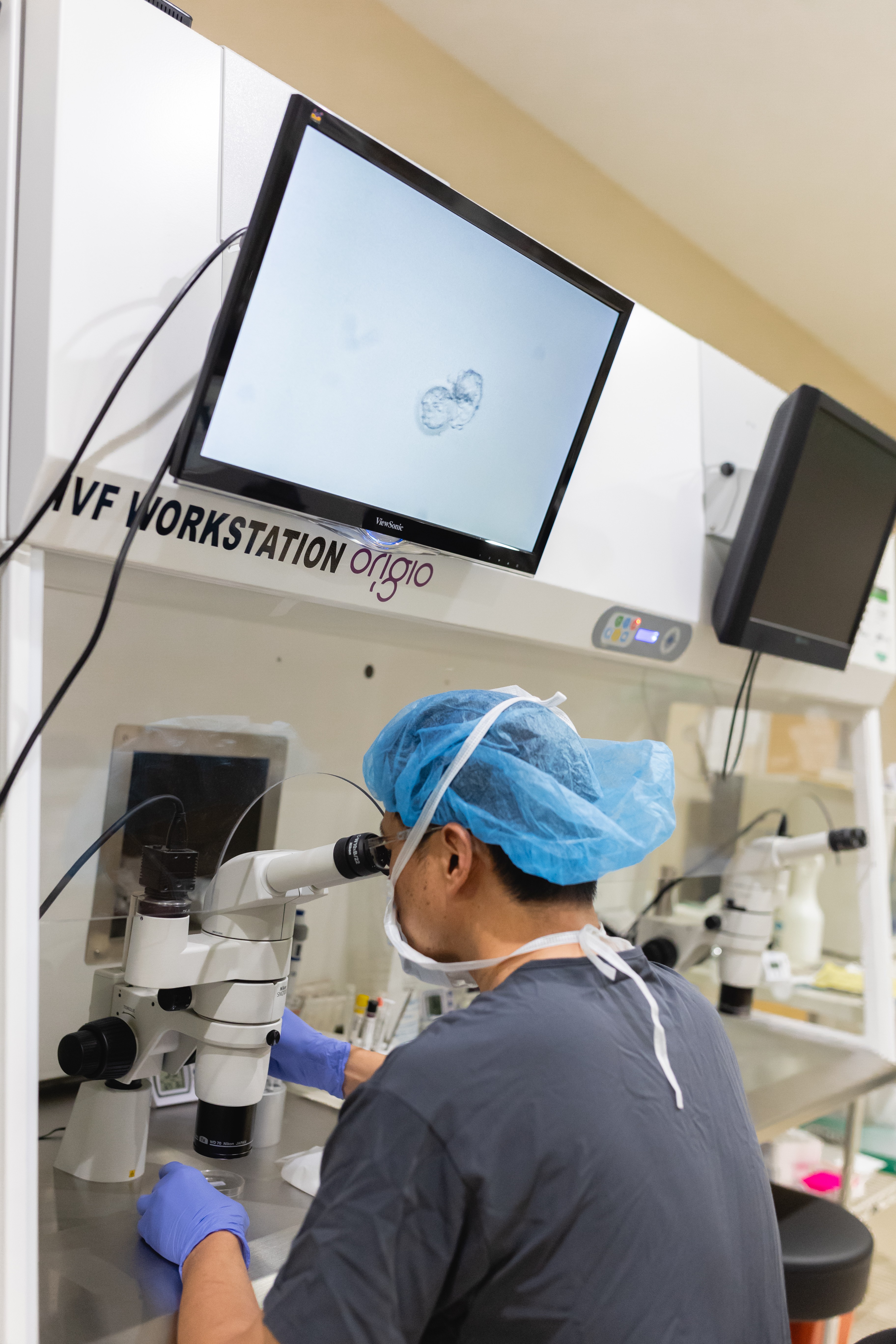
Egg Freezing
Who Should Consider Fertility Preservation?
-
Individuals diagnosed with cancer in their reproductive years should consider fertility preservation prior to starting treatment.
-
Chemotherapeutic agents can be toxic to reproductive organs, specifically ovaries and testicles where the reproductive cells are produced and stored. Preserving gametes prior to treatment can give patients peace of mind that they can still start or expand their family in the future.
-
Individuals who choose to delay becoming pregnant for social reasons—career choices, continuing education, lack of partner, or other personal reasons—and who want to give themselves access to “younger” eggs allowing for higher chances at pregnancy.
-
Individuals with autoimmune disorders who must be on medications that may destroy reproductive function.
-
Individuals who have been advised to have their ovaries removed (for example, due to severe endometriosis.)
-
Transgender individuals who wish to preserve genetic material prior to transition.
-
Individuals who choose to delay reproducing until later in life or are considering a vasectomy.
Who Should Consider Freezing Embryos (Eggs Fertilized by Sperm)?
Any individual described above who has a partner—and together, you wish to preserve your fertility as a couple.
The decision of freezing eggs versus freezing embryos can be complex and depends on your particular situation—schedule an appointment with one of NRM’s physicians to discuss how your needs will best be met.

What is Involved in Freezing Eggs?
-
The first step is a consultation with one of our providers to discuss the procedure and the risks and benefits. While egg freezing is not a guarantee of future pregnancy, our goal is to maximize your chances of success by using the latest cryopreservation technique.
-
You will then have diagnostic testing to evaluate your personal ovarian reserve. This will include bloodwork and an ultrasound to look at the ovaries. Once this has been completed, you will follow up with your provider to review results and customize a plan for your unique body.
-
An egg freezing cycle is similar to undergoing the first steps of IVF.
- You will undergo:
-
Ovarian stimulation with injectable medications
-
Monitoring via ultrasound and blood work
-
Egg retrieval
-
-
All mature eggs that are retrieved will be vitrified the same day utilizing the latest cryopreservation techniques to most efficiently and effectively store your eggs for future use.
-
Retrieving eggs from your ovaries does not decrease your fertility in the future.
-
Future use of stored eggs involves: warming the eggs, fertilizing the eggs via ICSI, and creating embryos in the laboratory for future embryo transfer.

